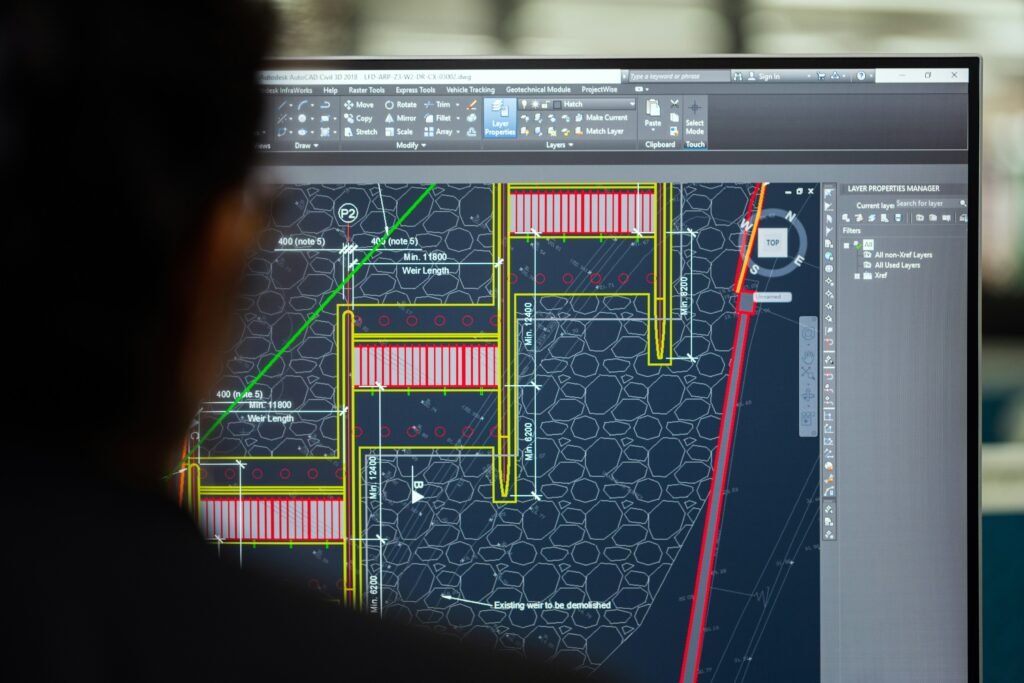In today’s digital age, laptops have become an integral part of our lives. From daily work tasks to entertainment, we rely on these portable devices for a multitude of purposes. However, many of us tend to overlook a crucial aspect of laptop maintenance: regular software updates. In this article, we will explore the importance of keeping your laptop’s software up to date and how it can enhance your device’s performance, security, and overall user experience. So, let’s uncover the significance of staying on top of those software updates and ensure that your laptop continues to function optimally.

This image is property of images.unsplash.com.
Why Software Updates are Important
Enhanced Security
Software updates play a crucial role in enhancing the security of your laptop. Without regular updates, your laptop may be vulnerable to various cyber threats such as malware, viruses, and hackers. Software developers constantly work on identifying and fixing security vulnerabilities in their products. By installing updates, you ensure that these security patches are applied to your software, reducing the risk of unauthorized access to your system and protecting your sensitive data.
Bug Fixes and Performance Improvements
Another important reason to regularly update your laptop’s software is to address bugs and improve performance. Software developers strive to provide the best user experience possible, and as a result, they release updates that fix any reported bugs or issues. These updates not only improve the overall stability and reliability of your laptop’s software but also optimize its performance. By keeping your software up to date, you can enjoy a smoother, faster, and more efficient computing experience.
Compatibility with New Software
Software updates also ensure that your laptop remains compatible with new software releases. As technology advances, new applications and programs are developed with updated functionalities and features. If you don’t update your software, you may encounter compatibility issues when trying to run or install these new software versions. By updating your laptop’s software regularly, you ensure that it remains compatible with the latest software releases, allowing you to take advantage of the latest features and functionalities.
New Features and Functionality
One of the exciting benefits of regularly updating your laptop’s software is the access to new features and functionalities. Software developers are constantly innovating and adding new features to their products. By installing updates, you get access to these new features, which can significantly enhance your user experience. From improved user interfaces to new productivity tools, software updates can bring a range of exciting additions to your laptop, making it even more versatile and enjoyable to use.
The Risks of Not Updating
Vulnerabilities to Cyber Attacks
By neglecting software updates, you are leaving your laptop vulnerable to cyber attacks. Hackers are constantly finding new ways to exploit security vulnerabilities in outdated software versions. Without the necessary updates, your laptop’s software may lack the necessary defenses against these emerging threats. Cyber attacks can lead to data breaches, unauthorized access to your personal information, or even financial loss. By staying vigilant and regularly updating your software, you significantly reduce the risk of falling victim to such attacks.
Decreased Performance and Stability
Not updating your laptop’s software can also have a negative impact on its overall performance and stability. Over time, outdated software may become incompatible with new hardware or incompatible with other software applications. This can result in slower performance, random crashes, or even system freezes. By keeping your software updated, you ensure that all components of your laptop work seamlessly together, optimizing its performance and providing a stable and reliable computing experience.
Incompatibility Issues
Outdated software can lead to compatibility issues when trying to integrate new software or hardware into your laptop. The latest applications and devices may require specific software versions or drivers to function correctly. If your laptop’s software is not updated, you may find yourself unable to install or use new software or hardware components. Keeping your software up to date ensures that you can take full advantage of the latest technology without any compatibility struggles.
Missed Out on New Features
By neglecting software updates, you may miss out on exciting new features and functionalities that can enhance your laptop experience. Software developers often release updates that introduce innovative features, improved user interfaces, or additional tools. By not updating your software, you deny yourself the opportunity to explore and benefit from these advancements. Staying updated ensures that you can enjoy the latest software capabilities and maximize your productivity and enjoyment with your laptop.
How to Update Software
Operating System Updates
To update your laptop’s operating system, you typically need to go to the “Settings” or “System Preferences” menu, locate the “Update & Security” or “Software Update” section, and follow the prompts to download and install the available updates. Operating system updates are often larger in size and may require a system reboot to complete the installation. It’s important to regularly check for and install these updates to keep your laptop’s operating system secure and up to date.
Application Updates
To update individual applications on your laptop, you can usually do so within the application itself or through an app store. Many applications have an automatic update feature that allows them to check for updates and install them automatically. Alternatively, you can manually check for updates by navigating to the application’s settings or preferences and looking for an update or check for updates option. Keeping your applications updated ensures that you have the latest features, bug fixes, and security patches for each specific program.
Driver Updates
Drivers are software components that allow your laptop’s hardware to communicate with the operating system. To update drivers, you can visit the manufacturer’s website for each specific hardware component on your laptop and download the latest driver version. Alternatively, your operating system may have a built-in driver update tool that automatically detects and installs the latest drivers for your hardware. Regularly updating your drivers ensures optimal performance, compatibility, and stability for your laptop’s hardware components.
Benefits of Regularly Updating Software
Improved Security
Regular software updates are vital for improved security. By staying up to date, you benefit from the latest security patches and fixes that software developers release to address vulnerabilities and protect against emerging cyber threats. These updates strengthen the overall security of your laptop, ensuring that your data and privacy are safeguarded from potential attacks.
Optimized Performance
Another significant benefit of regularly updating your software is optimized performance. Software updates often include performance improvements that enhance the speed, efficiency, and stability of your laptop’s applications and operating system. These optimizations can shorten load times, improve multitasking capabilities, and reduce system resource consumption, resulting in a smoother and more responsive computing experience.
Enhanced Compatibility
Regular software updates also offer enhanced compatibility. As new software and hardware are released, your laptop’s existing software may become incompatible or face integration issues. By regularly updating your software, you ensure that it remains compatible with new applications and devices, allowing you to seamlessly utilize the latest technology without encountering frustrating compatibility challenges.

This image is property of images.unsplash.com.
Best Practices for Software Updates
Enable Automatic Updates
Enabling automatic updates is one of the best practices when it comes to software updates. Most operating systems and applications offer the option to automatically search for and install updates. By enabling this feature, you ensure that your laptop’s software remains up to date without the need for manual intervention. Automatic updates provide convenience and peace of mind, as you know that your software is constantly being kept secure and optimized.
Regularly Check for Updates
In addition to enabling automatic updates, it’s essential to regularly check for updates manually. While automatic updates are convenient, they may not cover all software components or applications on your laptop. By manually checking for updates on a regular basis, you can ensure that all software, including less common applications, is updated to their latest versions. This practice reduces the risk of overlooking critical updates that may not be covered by automatic updates.
Backup Data Before Updating
Before updating your laptop’s software, it’s always a good idea to back up your important data. While software updates are generally reliable, there is always a small risk of unexpected issues or data loss during the installation process. By creating a backup of your essential files and documents, you can protect yourself from potential loss or corruption. Backing up your data can be done through various methods such as cloud storage, external hard drives, or network backups.
Common Concerns and Solutions
Time and Data Consumption
One common concern with software updates is the amount of time and data they consume. Large updates or installations may take longer, especially if your internet connection is slow. To address this, you can schedule updates to occur during off-peak hours when you are less likely to be using your laptop. Additionally, some operating systems and applications offer the option to download updates in the background without affecting your current tasks, reducing interruptions and data consumption.
Compatibility Issues with Legacy Software
Another concern is compatibility issues with legacy software. Certain older software versions may not be compatible with the latest updates or operating systems. In such cases, you can try running the software in compatibility mode or seek alternative software options. It’s crucial to balance the benefits of updating your laptop’s software with the need to continue using legacy software, and if necessary, consult the software developer or support forums for guidance.
Troubleshooting Update Failures
Occasionally, software updates may fail to install or encounter errors during the process. If this happens, it’s important to troubleshoot the issue. Restarting your laptop, disabling antivirus software temporarily, or clearing temporary files and caches can sometimes resolve update issues. If the problem persists, consulting the software developer’s support resources or reaching out to technical support can provide further assistance in resolving the update failures.

This image is property of images.unsplash.com.
Software Updates for Specific Components
BIOS Updates
The BIOS (Basic Input/Output System) of your laptop is responsible for initializing hardware components during startup. Regular BIOS updates can provide bug fixes, security patches, or enhanced hardware compatibility. To update your BIOS, you need to visit your laptop manufacturer’s website, locate the appropriate BIOS update file, and follow the provided instructions. It’s crucial to carefully follow the instructions to avoid any potential risks or complications during the update process.
Graphics Card Updates
Graphics card updates are essential for optimal performance and compatibility with the latest games and applications. Graphics card manufacturers regularly release driver updates to address bugs, improve performance, and support new features. To update your graphics card driver, you can visit the manufacturer’s website or use the built-in update tool provided by your operating system. Keeping your graphics card drivers up to date ensures smooth and efficient rendering of graphics-intensive tasks.
Hardware Driver Updates
Your laptop’s hardware components, such as the network adapter or sound card, may require regular driver updates for optimal functionality. Hardware driver updates often include bug fixes, improved performance, and compatibility enhancements. To update hardware drivers, you can visit the manufacturer’s website or use driver update software. By staying on top of hardware driver updates, you ensure that your laptop’s components work seamlessly together, providing a reliable computing experience.
Importance of Firmware Updates
Enhanced Hardware Functionality
Firmware updates are specifically designed to enhance the functionality of your laptop’s hardware components. These updates offer improved performance, bug fixes, or added features to the firmware embedded within hardware. Firmware updates can optimize battery life, improve system stability, or address specific hardware-related issues. Installing firmware updates ensures that your laptop’s hardware operates at its best and provides a smooth and reliable user experience.
Bug Fixes and Performance Improvements
Similar to software updates, firmware updates also include bug fixes and performance improvements. Manufacturers constantly work on identifying and resolving issues within the firmware of their hardware components. By installing firmware updates, you benefit from these improvements, ensuring that your laptop’s hardware operates smoothly and without any unexpected glitches or performance bottlenecks.
Updating Remote Work Devices
Ensuring Security and Reliability
For remote work devices, regular software updates are crucial for ensuring security and reliability. Remote devices are often connected to various networks, making them more susceptible to cyber attacks. By updating the software on your remote work devices, you strengthen their defense against potential threats and reduce the risk of a breach or unauthorized access. Additionally, regular updates improve the overall reliability and performance of your remote work devices, allowing you to work efficiently and without interruptions.
Preventing Remote Attacks
Regular software updates are an effective way to prevent remote attacks on your work devices. Cybercriminals target vulnerabilities in outdated software to gain unauthorized access, compromise data, or disrupt operations. By keeping your remote work devices up to date, you close security loopholes and significantly reduce the risk of falling victim to remote attacks. It’s particularly important to prioritize updates for remote work devices, as they often contain sensitive work-related data and confidential information.
Conclusion
Regular software updates are an essential aspect of maintaining the security, performance, and compatibility of your laptop. By regularly updating your operating system, applications, and drivers, you ensure that your laptop remains secure against emerging threats, experiences optimized performance, and benefits from the latest features and functionalities. Enabling automatic updates, regularly checking for updates, and backing up your data before updating are all best practices to follow. Firmware updates and updates for specific components, such as the BIOS and graphics card, further enhance functionality and address hardware-related issues. Whether for personal or remote work use, staying up to date with software updates ensures that your laptop remains a reliable and secure tool for your everyday tasks.
